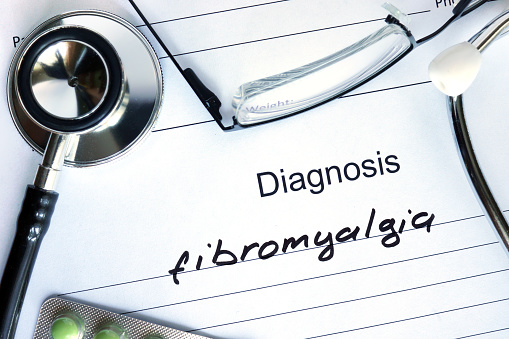- Providing Helpful Healthcare Products Since 1999 | Our Hours: 8 AM - 5 PM CST Mon - Fri
- +1-877-750-0376
Managing Fibromyalgia: Know Your Risk

Bathroom Safety for Seniors
August 21, 2017
Self-Care Awareness Month
September 25, 2017Most people know what Fibromyalgia is, or have at least heard the term—‘a disorder characterized by widespread musculoskeletal pain accompanied by fatigue, sleep, memory and mood issue.” [1]
There is no definitive reason or even a current cure for Fibromyalgia. It is not even known why one person will acquire this condition over another but there are some common traits that are associated with predicting one’s risk:
- Women—more likely than men to suffer from this condition
- Genetics—tends to be familial–possibly due to a genetic mutation
- Infections—a past or even present illness can exacerbate or trigger the onset of Fibromyalgia
- Trauma—emotional or physical trauma can set the wheels in motion for onset of this condition
- Arthritis —individuals who have Rheumatoid Arthritis, Osteoarthritis or Lupus, are more susceptible to Fibromyalgia
In addition, people who suffer from Fibromyalgia tend to have irritable bowel syndrome, tension headaches, anxiety and depression. These symptoms can accumulate over time making it difficult to know what the exact triggers are.
Fortunately, there has been much accomplished within the medical field in studying Fibromyalgia. In the not too distant past it, this condition was not understood and was labeled more as a psychosomatic condition–research has shown otherwise, hence, giving it an actual name.
Unfortunately, there is no known cure for Fibromyalgia which makes it that much more difficult to manage. There are, however, some medications on the market that can help reduce the pain and symptoms.
Managing Fibromyalgia[2]
- De-stress—yoga, exercise, sleep, meditation, deep breathing—any one of these or a combination of, has proven to be beneficial.
- Exercise regularly—it decreases stiffness and reduces stress; engaging in water exercises is a great option for taking weight off the joints.
- Soak in a hot bath—use a shower chair in the bathtub/shower and let the water run over you—heat increases endorphins, which helps to block pain signals.
- Take ‘me’ time—do the things you want for yourself—a hobby, reading, etc.
- Make a distraction-free bedroom—get a good night’s sleep. Your bedroom is for sleeping, so keep your room dark, cool and quiet- No TV!
- Keep a daily journal—track events and symptoms—this encourages a better awareness of your body to determine what triggers the pain and fatigue.
- Physical Therapy—helps to loosen up muscles, reduce muscle tension, increase range of motion, flexibility and strength.
- Pace yourself—don’t try to do all the housework in one fell swoop—fatigue is a key trigger for aggravating your symptoms.
Through thoughtful planning and understanding your body, managing Fibromyalgia is a doable task. Modern day medicine and healthy lifestyle changes will help to moderate your pain, stress level and discomfort.
[1] Mayo Clinic
[2] WebMd.com

